Final Fantasy XIII Lightning Returns Is Plato’s Euthyphro Dilemma In Drag
Having reached the end of the road in the third installment of the Final Fantasy XIII trilogy, requiring 150+ hours of game play over a four year period to climb the highest levels of power in creation and culminate in a conclusion to the series, I’m struck how the entire thing is really a well-done repackaging of Plato’s Euthyphro dilemma. It forces the player to answer a question that everyone should decide for themselves, whether religious or agnostic, atheist or Pastafarian, if they seek to know their own heart; to uncover the unspoken, hidden internal assumptions they carry around with them about the nature of good and evil.
In case it’s been awhile since you delved into the classics, the philosopher’s famous question posed in Greece more than 2,300 years ago can be summed up as (made singular since a majority of world religions are now monotheistic):
Is something “good” because God says it is good, making it dependent upon His will?or
Does God say something is “good” because it is inherently “right”, making goodness independent of His will?
Before you read any further, please note that this post contains spoilers about the game series. If you have plans on someday playing it, you might want to turn back now.
The God of Light and the Savior of Souls
In the third installment of the game, Bhunivelze, God of Light and creator of the universe, has awoken from a long slumber. Due to a series of events that occurred with one of his created children, the goddess Etro, the world is being consumed by chaos and there are only twelve days remaining until the final, thirteenth day when it will cease to exist. Creation has been reduced to a small landmass where the surviving members of humanity have lived for 500+ years, never aging but still being struck down with disease and accidents.
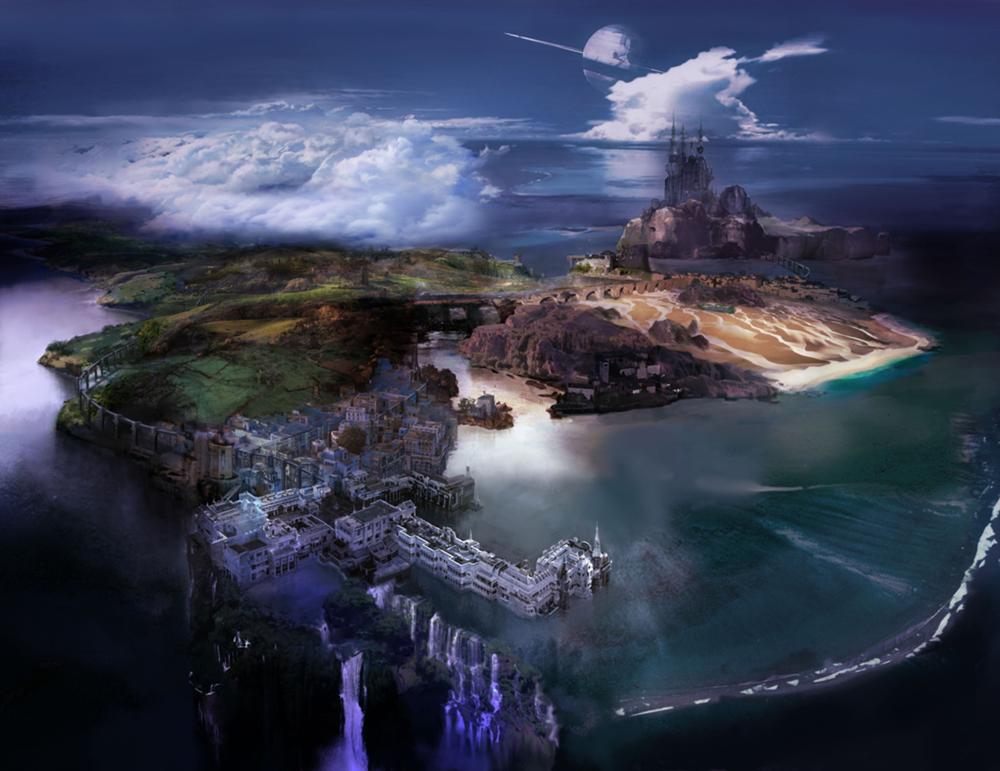
With twelve full days remaining before the final, thirteenth day, this is all that remains of creation as the Chaos rolls in, consuming everything.
While there is nothing He can do to stop the fall of the world, God has found a loophole to provide salvation. He built an ark as a refuge for the souls of humanity and has labored to fashion a world anew; a paradise where He will offer those chosen eternal happiness as vessels recreated, capable of being filled with his own divine glory, knowing no sadness or pain. Since He, himself, cannot see into the human heart, He calls forth a savior to gather the souls for Him to place them on the ark. He intends for her to one day take the place of the deceased goddess Etro and maintain balance by ensuring the cycle of life and death.
As the game begins, you must save enough people to complete the main story line, with each day in the game corresponding with 1 hour and 12 minutes in the real world, though you can call upon certain powers to temporarily suspend time, allowing you to increase this exponentially.
While you go through the world, and offer redemption to those who need it, healing their hearts and restoring their hopes, it starts to become clear that all is not as it appears. God has followers on Earth who are preparing a ritual that, it is later uncovered, will destroy all of the souls of those who have passed away, as he considered them unworthy compared to those who were able to survive, becoming stronger, during the five centuries of entropy and destruction. He doesn’t want his new children to feel the pain of loss, knowing their former loved ones weren’t allowed into His new universe, so He intends to wipe them, and all memory of them, out of existence.
You also realize that He has possessed the body of one of your closest allies, pulling his strings like a puppet, so He can keep an eye on you throughout your journey.
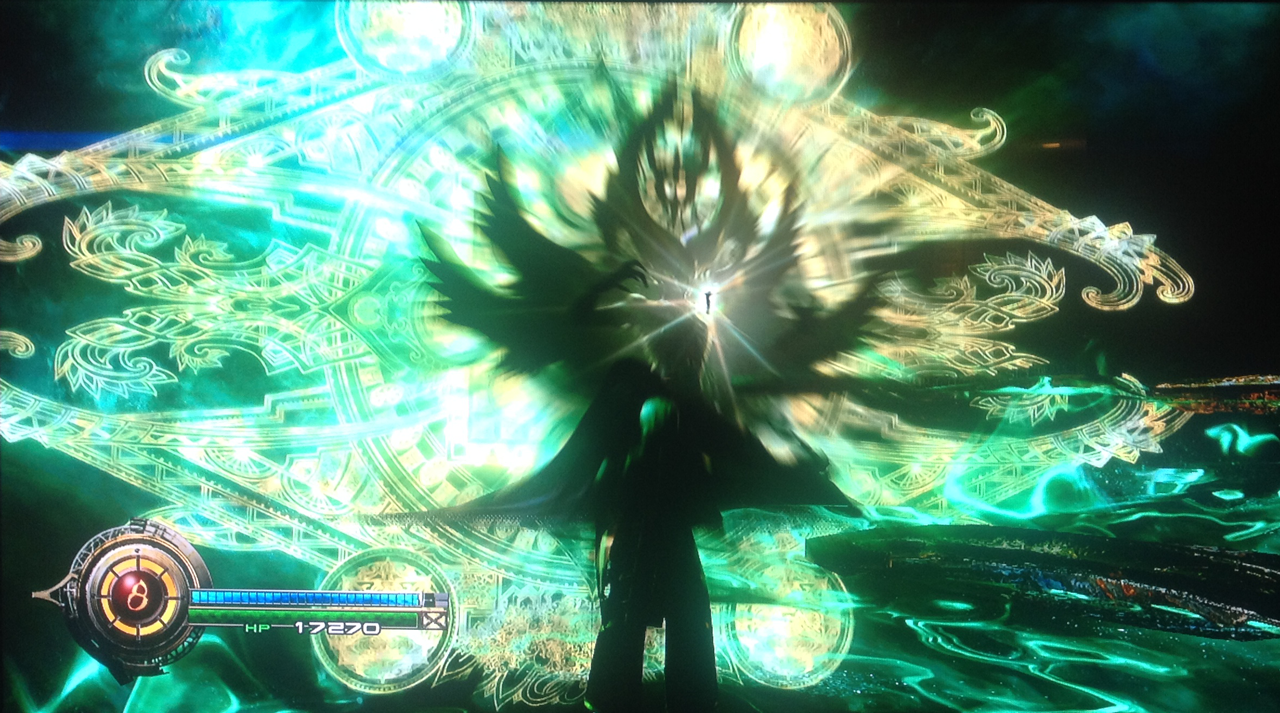
Approaching God in the cosmos after He has fashioned a new world … you can see the silhouette of your friend, who the entire game, it turns out, God has been possessing like a puppet, divine marionette strings holding him up in front of the creator as He knew the key to reaching you was those you loved.
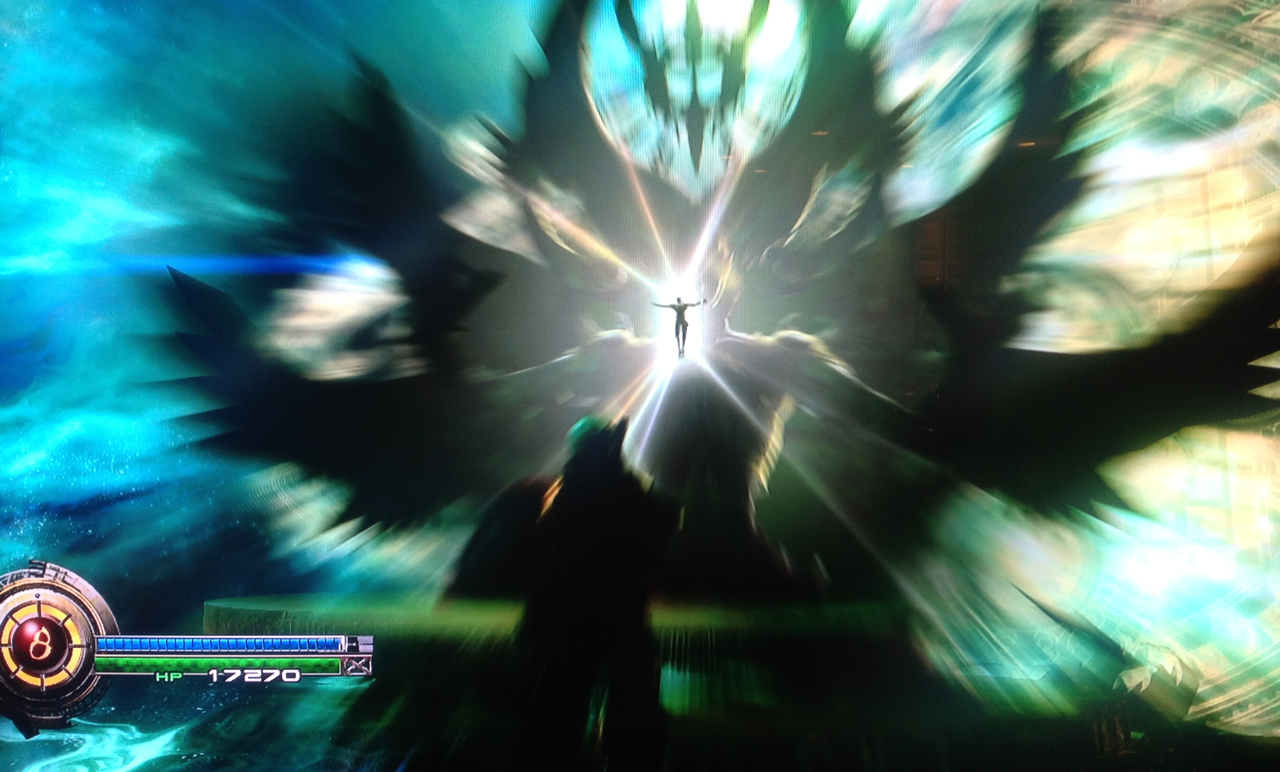
You see God, holding the body of your friend Hope, having refashioned the clay out of which he is made to serve as a sort of divine empty vessel so He could keep an eye on you this whole time. He’s essentially discarded Hope’s soul as it was no longer useful to Him.
As His will is laid out in front of you, the savior, it becomes clear that God is capricious and cruel. He speaks of divine love, yet casts aside any who are short of His standards or no longer meet His expectations. All is merely a reflection of Him. When a few brave humans realize who His avatar is and dare to question Him, He simply dissipates their Earthly bodies, reclaiming the energy with a defiant, “This is mine”, as all matter, including the clay from which men are made, flow from Him.
The Choice the Savior Must Make
And thus, faced with the horrifying prospect of something greater than mass murder on the grandest scale possible, the savior – you – decide to defy God and work with another of great power, guiding the souls of the deceased into the ark, as well. You believe that salvation should not be only for those who are worthy, but for anyone who is willing and desires it. As the world melts away, He makes you look upon His new universe and then says that, because of your action, He intends to burn it all in a sea of flame as He will not have those who are unworthy walk on its holy ground.
You, the savior of humanity, refuse to accept this and draw your weapon against God Himself. The final battle between messiah and Lord will determine the fate of eternity. It will determine whether there is a place in the new world for those who were not good enough on their own to inherit it.
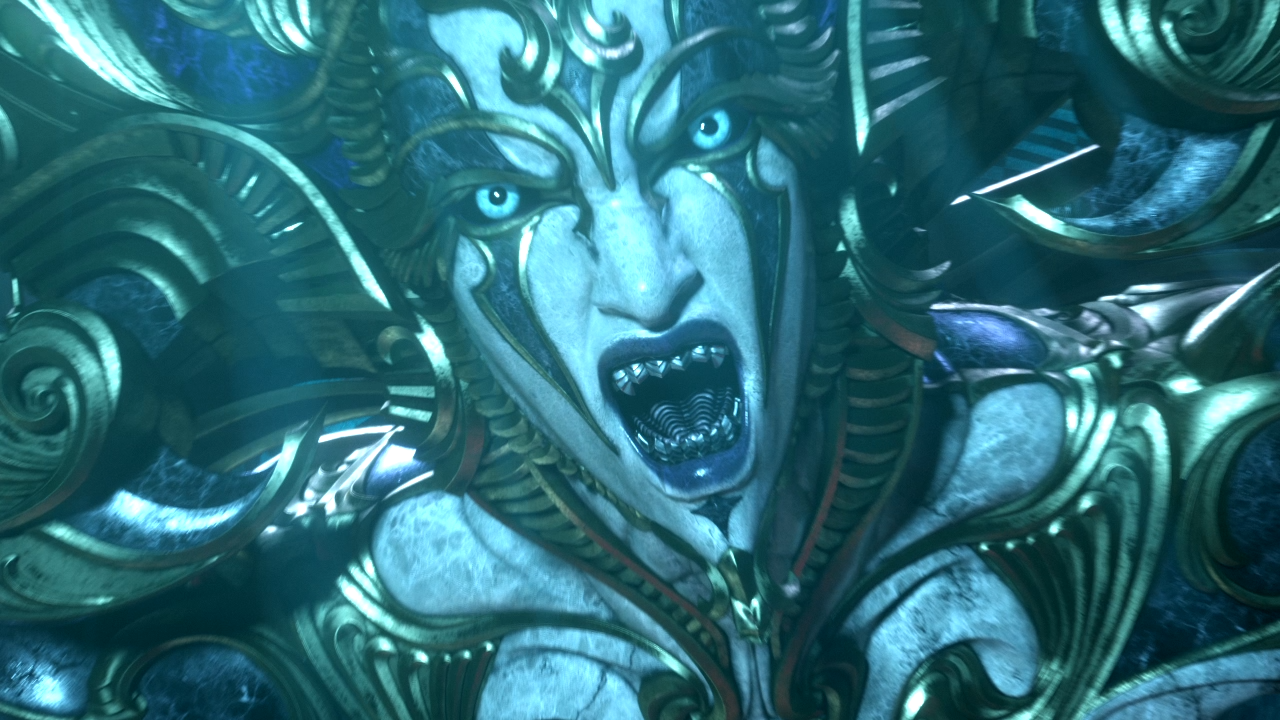
In the beginning, God takes your attacks as nothing more than an opportunity for you to show your worth to Him. Yet, as you progress and begin to damage Him with your own divine powers, He becomes enraged and says He will purify your body in fire for daring to raise your sword against the creator.
The Great Questions of Humanity Still Haven’t Been Answered
I think it’s interesting that civilizations have risen and fallen, countless generations been born, and the world changed in incalculable ways, yet one of the “hard” questions laid out by a very smart man a very long time ago can still serve as the underlying foundation to an entertainment product millennia later; a philosophical treatise wrapped in a shiny veneer. Though the pantheon of Zeus, Apollo, Hades, and Poseidon might have fallen, the question still comes up in a different form today when Christians, Jews, and Muslims ponder God’s demanded sacrifice of the life of Isaac at Abraham’s hand on Mount Moriah, even if only as a test of faith. The names change, the plot is the same, thousands of years go by, and humans still seek answers to a handful of questions that they are trying to settle for themselves. There’s something marvelous in that consistency.
I haven’t been able to withstand the temptation of posing the question to those in my own life, religious and non-religious alike. It gives such a clear picture into their worldview. Try it for yourself and you might be surprised how efficiently it lays bare the philosophy of those around you. In my own tests, the answers almost invariably fall into a handful of categories. What’s even more surprising is the fairly small, but still sizable, percentage of people who admit that if there were a God, and if He ordered something evil like the mass murder of innocents, they would still comply, without question, because “He’s God”. When pressed for a reason, there is a divide between those who say it would be a survival mechanism to avoid punishment from an entity with unfathomable power and those who believe that the mere command from the divine would transform that which was immoral into that which was moral. That last one is a terrifying proposition. If those in power can get someone to believe it, they can manipulate them into doing nearly anything. At its heart, it is responsible for billions of human deaths, rapes, tortures, thefts, and other sins.
As for me, what’s my answer? That’s not relevant, though the last paragraph should give you an idea of which direction in which I find myself tipping. What matters is how you answer it for yourself. If you knew beyond any question that a supernatural creator existed, and it were in your power to offer salvation to the world, would you turn you sword on God and defy Him, or would you obey, allowing those who were harmed by the fall to be lost forever? What would be your motivation? Would your answer change if you discover that God Himself had a creator? Someone higher up the divinity chain?
Who’d have thought a combination of ancient Greece and modern Japanese cultures would produce such thought-provoking questions? Storytelling is one of the greatest, and most valuable, traditions and it’s clear to see why. It offers people a chance to ponder existential questions in a non-academic, visceral way that is accessible to nearly anyone. I’m not sure if many of the people playing the game are necessarily aware of the history of the plot line they are traversing, but if it causes them to think, to examine the world, to look at their own beliefs and motivations to decide why they believe what they believe and, more specifically, what they believe, it’s gone beyond mere entertainment and become something more. While the medium may have changed – when author C.S. Lewis was discussing the nature of God, He used a pen and wrote out The Lion, The Witch, and the Wardrobe – little else has.
It was a wonderful way to spend the morning. I’m the only one awake, and I just started a New Game+ file on Hard, which removes the limit caps, allows significant upgrades in equipment and ability, as well as some other things. The best part? After beating the game, I got the Double Deity weapon, which has an only 5% probability drop rate. Now, Lightning will be running around wielding the weapon of God the next time I feel like saving creation.
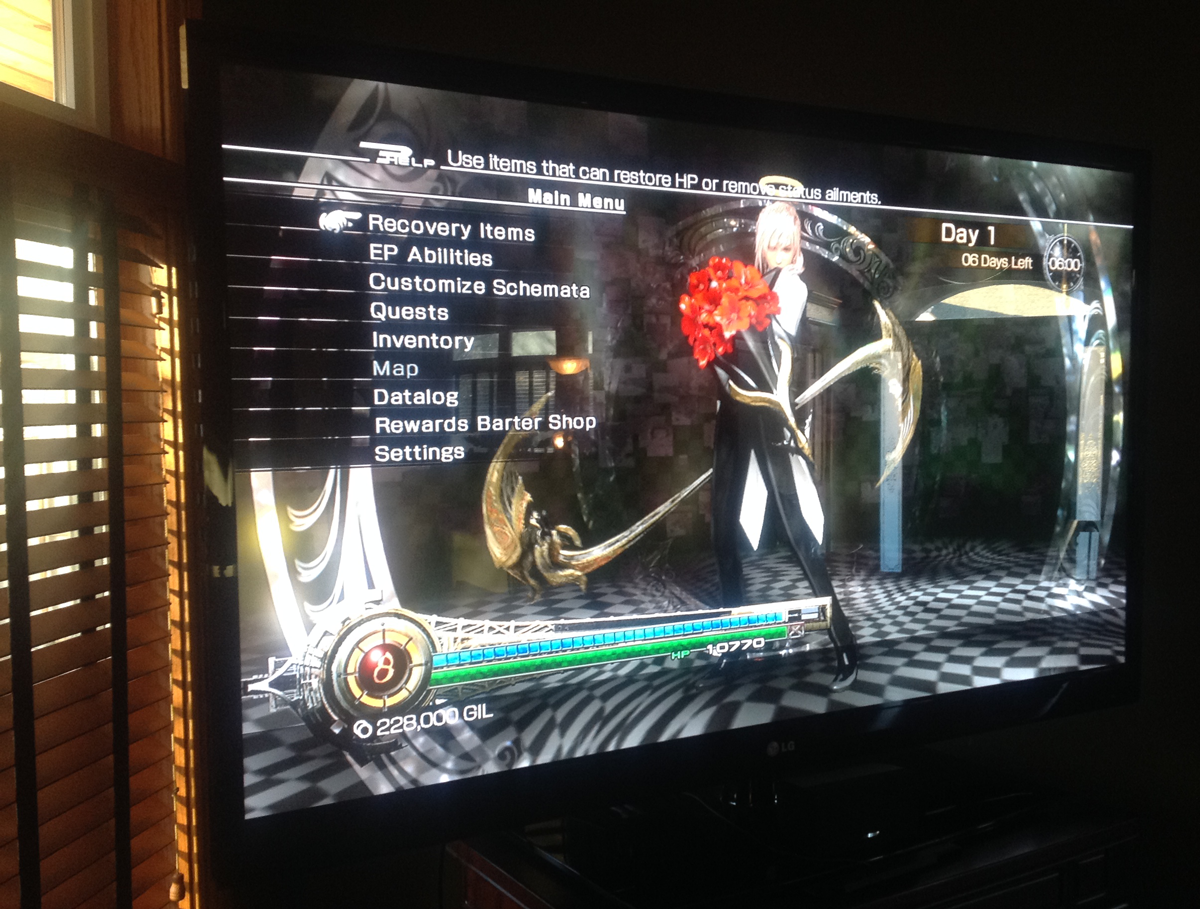
I’m so strong I don’t have to worry about stats at the moment so I’m going for the God-in-White-Tails look on my New Game+ file. This was the best Final Fantasy I’ve played in a long time, though it wouldn’t make any sense unless you had played the two installments prior to the final in the trilogy. I was worried about the timer in the game but I became so efficient with Chronostasis I managed to put in almost 67 hours.
Making coffee while the credits rolled and the sun rise came through the forest behind the house was one of the simplest, best memories I’ve had. It was so peaceful it was surreal.


